
Common Mistakes People Make After an Accident That Hurt Their Claim
Common Mistakes People Make After an Accident That Hurt Their Claim At Rector Stuzynski Law Firm, We Get You More! Exceptional Results Require Outstanding Attorneys
At Rector Stuzynski Law Firm, We Get You More!
Exceptional Results Require Outstanding Attorneys
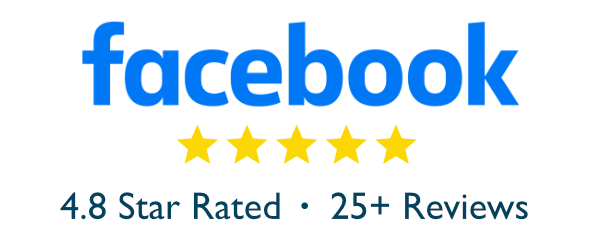


$4 Million +
Motor Vehicle Accident
$1.5 Million
Rear-End Car Accident
$1 Million
Motorcycle Accident

Millions Of Dollars Recovered Every Year For Our Satisfied Clients

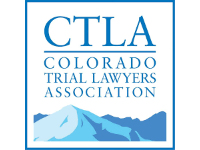



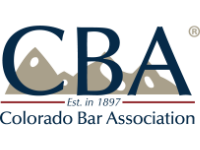

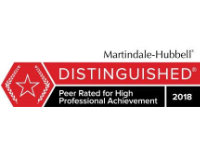
After an accident, one of the most common questions clients ask us at Rector Stuzynski Law Firm is, “What is my case worth?” It is a fair question, but one that does not have a simple answer. In fact, someone seeking a personal injury attorney should be leery of hiring anyone who tries to value your case at the first meeting. There are simply too many complexities for someone to give you a real answer.
The value of a case depends largely on the extent of injuries and the amount of available coverage, but there are other considerations to take into account. Usually, it takes at least 30 days to complete a coverage investigation, but even that does not answer the question entirely, because sometimes relatively minor injuries can develop complications that drastically change an initial “back of the napkin” case valuation. Every personal injury case is unique, and the value depends on a complex mix of factors, from medical expenses and lost wages to how an injury affects your daily life.
Insurance companies often pretend there is a formula, but there is not. What they really use are internal guidelines designed to minimize payouts. At our firm, we focus on the real value of your case, not the number the insurance company wants you to accept. We gather evidence, calculate all categories of damages, and tell your story in a way that forces adjusters and defense attorneys to take your claim seriously.
In this blog, we explain how personal injury cases are valued during settlement negotiations, what factors influence compensation, and how we make sure our clients in Colorado get every dollar they deserve.
A settlement negotiation is a discussion between your attorney and the insurance company to agree on a fair amount of compensation for your injuries and losses. Most personal injury cases in Colorado are resolved through settlement rather than trial, but that does not mean the process is easy.
Negotiations often start with a demand package prepared by your attorney. This includes medical records, billing statements, wage loss documentation, photos, expert opinions, and a detailed narrative describing how the accident affected your life. In cases involving significant injuries, that package may also include an impairment rating or projection for cost of future treatment. The insurance company responds with a low offer, often insultingly low. From there, negotiations move in rounds, with offers and counteroffers exchanged until either both sides agree or it becomes clear that the insurer will not be reasonable, in which case we prepare for litigation.
The key to successful negotiation is preparation. Insurance companies only pay top value when they know the attorney on the other side is ready, willing, and able to take the case to trial. Rector Stuzynski Law Firm has earned that reputation through rigorous case preparation.
Personal injury settlements are designed to make the injured person whole, meaning to put them as close as possible to the position they were in before the accident. Because you cannot undo the injury, compensation is the only way to balance the scales.
There are three main categories of damages in a personal injury case: economic damages, non-economic damages, and sometimes punitive damages. Each plays a key role in determining settlement value.
Economic damages are the financial losses directly caused by the injury. They are typically easy to document with receipts, invoices, and pay stubs.
Common examples include:
Our firm meticulously documents every financial loss and works with your providers to make sure your bills are accurate and justified. This forms the financial foundation of your case value.
Non-economic damages compensate you for the human cost of injury, including pain, suffering, emotional distress, and loss of enjoyment of life. These are harder to quantify but often represent the most significant part of a settlement.
Insurance companies like to downplay non-economic damages because they cannot be measured with receipts. We know how to prove them. We build a complete picture of how your life has changed. Are you in pain when you wake up? Have you had to give up hobbies or activities you once loved? Has your injury strained your relationships or caused anxiety or depression? Do you have ongoing fear, sleeplessness, or physical limitations?
These experiences matter, and Colorado law recognizes that. We use testimony from family, friends, and co-workers to make the full emotional and physical impact clear.
Punitive damages are not awarded in every case. They are meant to punish a defendant for particularly reckless or intentional conduct, such as drunk driving or road rage. In Colorado, punitive damages are only awarded when there is clear and convincing evidence that the defendant’s behavior was willful, wanton, or fraudulent.
While punitive damages are less common, when they apply, they can significantly increase the value of a case. Our firm evaluates every file to determine whether this category may be appropriate.
Insurance companies often use claims software like Colossus or ClaimIQ to determine what they think a case is worth. These programs analyze diagnosis codes, treatment duration, and billing to generate a range of acceptable offers.
The problem is that software cannot measure human suffering, and it often undervalues the long-term impact of injuries. These systems are designed to protect the company’s profits, not to compensate fairly.
A well-prepared attorney can often secure a settlement far above the insurer’s initial estimate. By providing context, supporting evidence, and a clear narrative about your life before and after the injury, we force the insurance company to see beyond the numbers.
Your medical records are the backbone of your claim. Adjusters and defense attorneys look for consistency between your reported symptoms and your treatment history.
We advise our clients to be completely honest and thorough when describing symptoms to their doctors. If you downplay your pain, it can reduce your settlement later because the medical record will not reflect your true condition.
We also ensure that all diagnoses, referrals, and future care recommendations are documented properly. Medical evidence should clearly link your injuries to the accident, what is known in law as causation.
If the insurance company tries to argue that your pain was caused by a pre-existing condition, we gather prior records to show the difference between your health before and after the incident. The law allows recovery for the aggravation of a pre-existing condition, and we make sure that distinction is clear.
Lost wages are calculated by adding up the income you lost while you were unable to work because of your injuries. This includes salary, hourly wages, bonuses, and lost self-employment income if you are self-employed.
Future earning capacity is more complex. It looks at how your injury will impact your ability to work in the future. For example, if you were a construction worker and suffered a serious back injury that prevents you from lifting heavy materials, you may not be able to return to your previous job.
We use vocational experts to analyze your education, job history, and skills, and economists to project how much income you are likely to lose over your lifetime. These expert calculations often make the difference between a small settlement and one that truly accounts for your future losses.
Pain and suffering are inherently personal. They represent the daily reality of living with an injury, the pain that lingers long after the medical bills are paid.
Insurance companies often use multipliers to calculate these damages, offering one and a half to three times the amount of medical bills depending on the severity of the injury. But this method ignores the individual impact of an injury.
We do not rely on formulas. Instead, we focus on storytelling supported by evidence. We explain how the injury has changed your daily life, backed up by medical opinions, photographs, and testimony. Jurors and adjusters respond to truth and detail.
When done right, this approach consistently results in higher settlements because it humanizes the claim.
In Colorado, liability, or who is at fault, has a direct effect on settlement value. Under our state’s comparative negligence rule, your compensation is reduced by your percentage of fault. If you are found 20 percent at fault, your damages are reduced by 20 percent. If you are 50 percent or more at fault, you cannot recover anything.
That is why establishing liability clearly is critical. We gather police reports, witness statements, crash reconstruction data, and sometimes traffic camera footage to remove doubt. The stronger your liability case, the higher your settlement value.
Insurance companies know this too. They often try to shift blame, even slightly, to reduce their exposure. We push back immediately and prove fault through solid, documented evidence.
Insurance adjusters evaluate not only the facts but also the credibility of the injured person. They look at whether your story has been consistent, whether your treatment aligns with your complaints, and whether your doctors support your version of events.
That is why communication matters. We make sure every piece of evidence tells a consistent story from the first report to the final settlement demand.
Even something as simple as a social media post can affect credibility. If you claim you cannot lift objects but post a picture carrying groceries, it can be taken out of context and used against you. We counsel our clients to avoid social media activity during the claim process to prevent these misunderstandings.
The timing of your claim can have a major impact on the amount you recover. If you try to settle too early, before you have finished medical treatment, you risk leaving money on the table because future costs may not yet be known.
On the other hand, waiting too long can give the insurer an excuse to argue that you were not seriously injured or that something else caused your symptoms.
Our firm strikes the right balance by filing the claim promptly but waiting to negotiate until we have a clear picture of your recovery and prognosis. That ensures we demand full value for both current and future damages.
Negotiation is both an art and a science. At Rector Stuzynski Law Firm, we rely on evidence, preparation, and persistence.
Here is a typical process:
Our negotiation style is professional but firm. We do not bluff or inflate numbers; we present evidence that justifies every dollar we demand.
There are several reasons a case might settle for less than full value. Weak medical documentation, unclear liability, delays in filing or treatment, or poor legal representation can all hurt your claim.
We prevent these problems by taking a proactive approach from day one. Our cases are organized, documented, and trial-ready long before negotiations begin. Insurers know Rector Stuzynski Law Firm will not settle for less than fair value.
It is easy to think of settlement negotiations as a numbers game, but for our clients, it is deeply personal. This is your health, your livelihood, and your future. It is also about fairness.
We understand that it can be frustrating to watch insurers question your integrity or downplay your pain. That is why we handle communication for you. You never have to talk to the adjuster, respond to letters, or defend yourself against their tactics.
Our job is to take on that stress and to make sure the process leads to justice, not exhaustion.
At Rector Stuzynski Law Firm, we believe your injury claim should reflect the full impact the accident had on your life, physically, emotionally, and financially. We know the insurance company’s playbook, and we have spent decades fighting back on behalf of clients throughout Colorado Springs and beyond.
When you hire our firm, you get a team that will calculate every dollar of your damages, manage communication with the insurer, and push your case forward until you get the compensation you deserve.
If you have been injured and want an experienced team to value your case properly and negotiate with strength, contact Rector Stuzynski Law Firm today for a free consultation. We will review your situation, explain your rights, and start building the evidence to protect your future.

This article was written by Michael Stuzynski of Rector Stuzynski Law Firm. Michael is a decorated personal injury attorney that has been helping Colorado Springs injury victims get compensation since 2019. With hundreds of injury settlements under his belt, he is an expert in all areas of personal injury law and litigation.

Common Mistakes People Make After an Accident That Hurt Their Claim At Rector Stuzynski Law Firm, We Get You More! Exceptional Results Require Outstanding Attorneys

Understanding Comparative Negligence and How It Impacts Your Case At Rector Stuzynski Law Firm, We Get You More! Exceptional Results Require Outstanding Attorneys CALL FOR

How Personal Injury Cases Are Valued During Settlement Negotiations At Rector Stuzynski Law Firm, We Get You More! Exceptional Results Require Outstanding Attorneys CALL FOR

Why Insurance Companies Try to Minimize Your Claim (and How We Fight Back) At Rector Stuzynski Law Firm, We Get You More! Exceptional Results Require
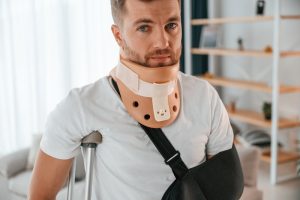
What Is Subrogation in Personal Injury Cases and How Does It Affect Your Settlement? At Rector Stuzynski Law Firm, We Get You More! Exceptional Results
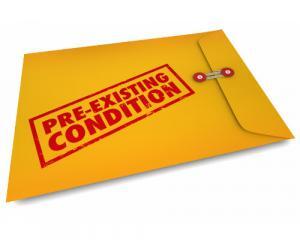
How Pre-Existing Conditions Affect Personal Injury Cases At Rector Stuzynski Law Firm, We Get You More! Exceptional Results Require Outstanding Attorneys CALL FOR A FREE
We provide legal services for personal injury and accident victims throughout the state of Colorado, but we focus on clients in these areas: Colorado Springs, Manitou Springs, Cimarron Hills, Northeast Colorado Springs, Southeast Colorado Springs, Stratmoor, Fort Carson, Air Force Academy, East Colorado Springs, Old Colorado City, Pleasant Valley, Broadmoor, Stratton Meadows, Fountain, Northwest Colorado Springs, Gleneagle, Northgate, Briargate, Monument, Woodmoor, Black Forest, Pueblo, Canon City, Larkspur, Security-Widefield, Peyton, Falcon, Calhan, Castle Rock, Teller County, El Paso County, Elbert County, Park County, Douglas County and nearby cities.
We serve clients injured in the following zip codes: 80907, 80909, 80918, 80917, 80931, 80932, 80933, 80934, 80935, 80936, 80937, 80941, 80942, 80946, 80947, 80949, 80950, 80960, 80962, 80977 ,80995 ,80997 80901, 80912, 80904, 80915, 80905, 80910, 80923, 80922, 80919, 80920, 80916, 80939, 80914, 80951, 80924, 80927, 80938, 80906, 80840, 80829, 80902, 80809, 80841, 80911, 80908, 80929, 80819, 80921, 80925, 80132, 80926, 80913, 80863, 80817, 80831, 80133, 80930, 80860, 80814, 80813, 80118, 80106, 80928, 80866, 80816, 80808, 80104, 80116, 81008, 80864, 80135, 81240, 81007, 80109, 81290, 80107, 80108, 80425, 81215, 81221, 80117, 80827, 81212, 80134, 80835, 81003, 80131, 81226, 81001, 80138, 80125, 81002, 81009, 81010, 81011, 81012, 80124, 81244, 80126, 80820, 80130, 80163, 80433, 80129, 80833, 80112, 80832, 81025, 81005, 81223, 81006, 80470, 80127, 80122 and beyond.